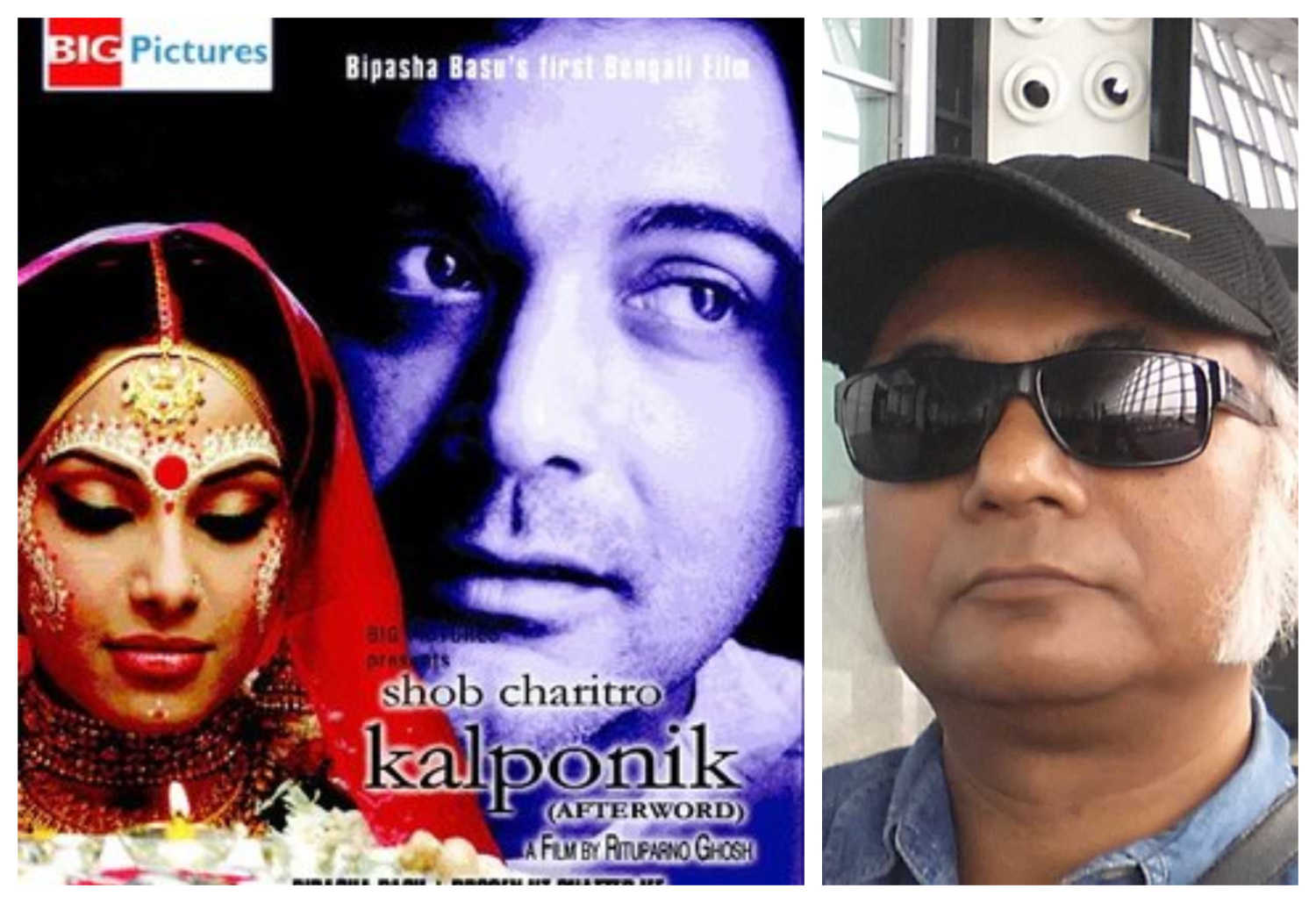The late Rituparno Ghosh's long-time associate Arghyakamal Mitra looks back on what was probably the unconventional director's most experimental project.
The audience had a tough time understanding Shob Choritro Kalponik, says editor Arghyakamal Mitra
Kolkata - 30 Aug 2019 13:07 IST


Roushni Sarkar
Shob Choritro Kalponik (2009) is perhaps Rituparno Ghosh’s most experimental work, in terms of the cinematic composition. In the film, the way Ghosh managed to create the haunting experience the protagonist goes through is surreal. The film, which was released on 28 August 10 years ago, is a masterful example of the depiction of psychological turmoil that often transcends the barrier of reality.
Apart from commanding performances by, would you believe it, Bipasha Basu, Prosenjit Chatterjee, Jisshu Sengupta and Sohag Sen, one of the real heroes of the film remains the clean and synchronic editing by Ghosh’s long-time associate Arghyakamal Mitra.
Mitra spoke to Cinestaan.com about what pushed Ghosh to attempt such a project that was experimental both in terms of content and composition and why the audience did not get it. Excerpts:
Shob Choritro Kalponik’s narrative shifts from real to surreal. How did you work on that as the editor?
It was scripted that way. Ritu had in his mind how the film should turn out. It’s a constant oscillation between the real and the unreal. The dead comes back in the film not as a ghost but as a projection of the mind. Also, in the narrative, when Indranil was alive, Radhika did not have a proper relationship with him, but, strangely, after death they come closer. To project this idea, Ritu thought of such a cinematic composition.
How did he explain those shifts to you and how did you manage to implement those ideas so well?
Actually, we always used to have discussions regarding the layout of the script — how things will work out and whether certain elements were going overboard. I was kind of aware what was going to happen. Films offer the platform for that kind of play between the real and the unreal. It is possible with a certain kind of twist to turn a real incident into an unreal one, as a projection of the mind. He also wanted to raise the question whether a person’s existence actually vanishes after his or her physical death. He believed people can go on living even after the end of their mortal life.
I did not have to face much difficulty while editing the film because it was exactly shot the way it was scripted. There were minor changes, but there was no major overhauling on the table. We emphasized on keeping the mode subtle and made the necessary changes.
Why do you think he wanted to make such a film?
Till Shob Choritro Kalponik, Ritu was seen to be experimenting with the narratives of his film in terms of the content. However, with Shob Choritro Kalponik, he wanted to attempt a different take on the cinematic narrative in which not a linear progression was undertaken while, at the same time, a story was being told.
Apart from the ideological differences between the husband (Prosenjit) and wife (Basu) in the film, there was the intention to portray the longevity of a creative soul. Indranil, the poet, is even misunderstood by his wife Radhika. It is after Indranil’s death that Radhika begins to discover the human being and also as if starts living with him in a more amicable way. Artistes are often understood better through their works. Like, for example, Van Gogh was entirely misunderstood by his kin in his lifetime and it was only after his death that efforts to delve into his psyche were made. A lot of artistes often get posthumous recognition.
How do you look at the film in terms of its legacy in Bengali cinema after 10 years of its release?
I think the film was well ahead of its time in the sense that the audience had a tough time understanding the basic intention of the filmmaker. The moment you see someone coming back from the dead, there is a feeling of enticing fear or laughter. It took time for the audience to play along the lines of the director’s thought and I don’t think it had a very positive response. The audience definitely gave it a miss.




